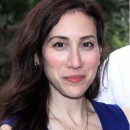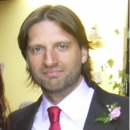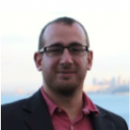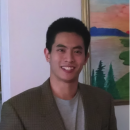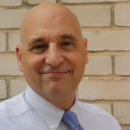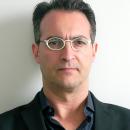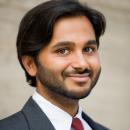Week of:
Patient vs. Subject vs. Guinea pig – regardless of what you call it, enrollment = never enough
Last month one of our teammates, (Viva) sent around an article from The Atlantic, “The Life of a Professional Guinea Pig". As the title implies, this article interviewed a man who made a living by participating in clinical trials. But it wasn’t just one person doing this, he was part of a network of individuals who rely on their eligibility in clinical trials for income, and will go so far as to lie during enrollment in order to pass the eligibility requirements. These individuals also relied on each other as a way to “network” and get access to other “gigs”. At first, I respectfully marveled at the fact that people seek out trials as a means of income, especially given side effects of some trials, which make the patients “violently ill”. Why would someone do that if they are healthy and not trying to cure a disease or relieve a symptom of a disease?
As my research for this project progressed, the idea that one would participate in clinical trials for a living began to make sense considering how time-consuming and demanding some clinical trials can be, and the fact that one would likely need to take time from work or other life responsibilities in order to fulfill the needs of a clinical trial in an efficacious way – thereby sustaining the ideally symbiotic-mutualistic relationship which, in the case of “guinea pigs”, refers to benefitting the trial with quality data, and providing the “employee” with income. Both parties benefit. So excluding the patient who is very sick and for all intents and purposes a full-time patient, how convenient is it for your typical employed, healthy individual to participate in a clinical trial? This led me to briefly consider the other scenarios whereupon a person might enroll in a clinical trial (CT):
- Illness, i.e., disease or condition
Benefit:
- Recovery, (cancer patients, HIV+ patients)
- Improved overall health, (weight-loss study, diabetes patients)
- Symptom relief, (insomnia patients, pain patients)
- Having no disease, or having a chronic condition – non-life threatening, (i.e., early stages of CKD)
Benefit:
- Data; indirect, if any, benefit to the patient/subject
- Compensation; monetary or other
- Altruism
Medicine is not my world so I may have missed a few scenarios but I couldn’t come up with a scenario where a patient WITH an illness would join a CT ONLY for the compensation. In my experience, the monetary compensation just isn’t enough – the demands of a typical CT usually outweigh even the most altruistic of individuals. So there would need to be an additional incentive. For example, a potential health benefit in addition to compensation.
Similarly, as for the latter construction, (having no disease, OR having a chronic condition), barring extreme circumstances (i.e., desperate for income and/or convenient CT requirements), a person without a disease, or with a chronic, non-life threatening condition would likely need more incentive than the monetary compensation to enroll in and fulfill all the needs of a CT. What other incentives are there for a patient to enroll in a CT, keep up with the requirements and follow ups, and avoid dropping out? From a patient/subject perspective, is it enough to know that the data provided could help researchers better understand disease progression, and add to a repository that will help scientists better plan future clinical trials? The amount of data collected from each individual patient during a CT is overwhelming and in a way, discouraging. As a patient/subject with a non-life threatening disease, is it enough to know that your blood and urine samples, electrocardiographs, echocardiograms, MRI’s, (and not to mention TIME) will be effectively used to fill in [hopefully] one, maybe two missing pieces of *insert disease/condition here* puzzle to identify better treatment protocol for future patients with said disease? …And we wonder why we keep hearing about “the hurdles of enrollment”.
Simply put, it seems like there should be a more efficient way for the general population, (not just guinea pigs or patients) to get involved in the world of clinical trials. It clearly isn’t enough for some of us to be aware of CT’s, (CT.gov) and a very small portion of us to turn CT enrollment into a career. This issue with enrollment and participation led me to a pseudo liberty vs security deliberation. In the context of CT’s, enrollment, and data collection, how do we as a society prioritize our health and our privacy?
Our team has taken an interest in a system with a more “patient-centered” approach, but what if we (general societal we) need to relinquish some of our own data, for example – during annual check ups, primary care visits, or upon initial diagnoses – to a nationwide repository with the goal of adding value to overall public health. For example, when an individual is initially diagnosed with a disease they are immediately placed on a list to be contacted about local, applicable clinical trials and encouraged to participate. In a way we all have stake in the current system, but not every individual is adding value to the system. Instead we just expect science and research to bring us to a cure. 5k’s and half marathons that raise money for _______ disease/condition research are admirable, but what if half of those people took that time to sign up for and contribute to a clinical trial. What would our enrollment look like then?
Given all these assumptions of patients vs. subjects vs. guinea pigs, I decided it wasn’t enough for me to try and understand this world by talking to the patients/subjects/guinea pigs – I wanted to learn about it first-hand. So, I set out to find a clinical trial in Baltimore for which I might be eligible. Stay tuned for my “trial” of clinical trials.

